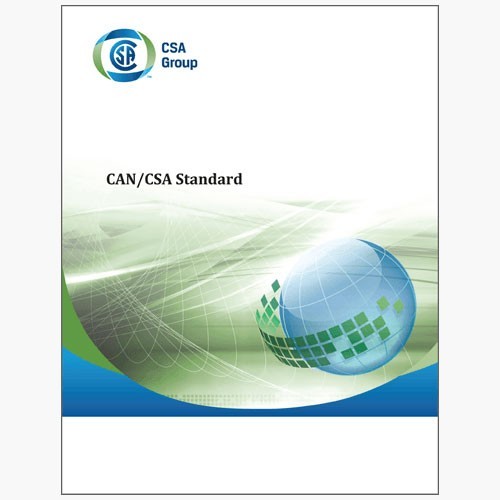TOLL FREE · 1-888-361-0003 Our Customer Support is ready to help!

Formats Available:
Online,
Print
Product Overview
C22.2 NO. 267-16
CSA Group Armoured segmented power and communication assembly (ASPCA)
Total
As low as
$125.00
More About This Product
Description
Preface This is the second edition of CSA C22.2 No. 267, Armoured segmented power and communication assembly (ASPCA). It is part of a series of Standards issued by CSA Group under the Canadian Electrical Code, Part II. It supersedes the previous edition published in 2015. This new edition contains new information to clarify the installation instructions, establishes the minimum requirements for durability of the marking on the product, and changes some testing references from the CSA 22.2 No 0.3 to CSA C22.2 No 2556. For general information on the Standards of the Canadian Electrical Code, Part II, see the preface to CAN/CSA-C22.2 No. 0, General Requirements - Canadian Electrical Code, Part II. Scope 1.1 This Standard specifies the construction and testing of armoured segmented power and communication assembly (ASPCA) composite cable systems suitable for emergency applications intended for installation in accordance with the rules of the Canadian Electrical Code, Part I, on systems having nominal voltages of 600 V or less. Note: Systems can include insulated power conductors, optical fibers, coaxial cables and fittings (connectors and boxes). 1.2 This Standard applies to fire-resistant-rated, armoured, thermally-insulated, strain-relieved, multi- conductor, segmented, power and communications cable systems, rated up to 600 V and intended for use in industrial and commercial applications. 1.3 In this Standard, "shall" is used to express a requirement, i.e., a provision that the user is obliged to satisfy in order to comply with the standard; "should" is used to express a recommendation or that which is advised but not required; and "may" is used to express an option or that which is permissible within the limits of the Standard. Notes accompanying clauses do not include requirements or alternative requirements; the purpose of a note accompanying a clause is to separate from the text explanatory or informative material. Notes to tables and figures are considered part of the table or figure and may be written as requirements. Annexes are designated normative (mandatory) or informative (non-mandatory) to define their application.
Preface This is the second edition of CSA C22.2 No. 267, Armoured segmented power and communication assembly (ASPCA). It is part of a series of Standards issued by CSA Group under the Canadian Electrical Code, Part II. It supersedes the previous edition published in 2015. This new edition contains new information to clarify the installation instructions, establishes the minimum requirements for durability of the marking on the product, and changes some testing references from the CSA 22.2 No 0.3 to CSA C22.2 No 2556. For general information on the Standards of the Canadian Electrical Code, Part II, see the preface to CAN/CSA-C22.2 No. 0, General Requirements - Canadian Electrical Code, Part II. Scope 1.1 This Standard specifies the construction and testing of armoured segmented power and communication assembly (ASPCA) composite cable systems suitable for emergency applications intended for installation in accordance with the rules of the Canadian Electrical Code, Part I, on systems having nominal voltages of 600 V or less. Note: Systems can include insulated power conductors, optical fibers, coaxial cables and fittings (connectors and boxes). 1.2 This Standard applies to fire-resistant-rated, armoured, thermally-insulated, strain-relieved, multi- conductor, segmented, power and communications cable systems, rated up to 600 V and intended for use in industrial and commercial applications. 1.3 In this Standard, "shall" is used to express a requirement, i.e., a provision that the user is obliged to satisfy in order to comply with the standard; "should" is used to express a recommendation or that which is advised but not required; and "may" is used to express an option or that which is permissible within the limits of the Standard. Notes accompanying clauses do not include requirements or alternative requirements; the purpose of a note accompanying a clause is to separate from the text explanatory or informative material. Notes to tables and figures are considered part of the table or figure and may be written as requirements. Annexes are designated normative (mandatory) or informative (non-mandatory) to define their application.
